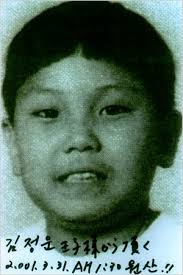
Introduction
Kim Jong Un, the Supreme Leader of North Korea, has been a focal point of international relations since he ascended to power in 2011. Understanding his leadership style and policies is crucial in comprehending the complexities of North Korea’s interactions with the rest of the world. As tensions in the region fluctuate, Kim’s actions significantly influence global stability and security.
Recent Developments
In 2023, Kim Jong Un’s regime has continued to develop its nuclear capabilities, with a series of missile tests that have drawn widespread condemnation from the international community. Most recently, in October 2023, North Korea launched two short-range ballistic missiles into the Sea of Japan, claiming these tests are a response to joint military exercises conducted by South Korea and the United States. This escalation has raised concerns among neighboring countries and the United Nations, who are wary of the potential for military conflict.
Additionally, Kim’s administration has faced significant internal challenges, including food shortages exacerbated by the Covid-19 pandemic and strict border controls. Humanitarian organizations have been trying to deliver aid, but access remains severely restricted. North Korea’s economy remains stagnant, and the leadership’s focus on military advancement over economic reforms has led to increasing discontent among the populace.
The Importance of Dialogue
Despite these challenges, dialogue remains essential. The Biden administration has expressed a willingness to engage in talks aimed at denuclearization without preconditions. Kim Jong Un’s previous summits with former U.S. President Donald Trump in 2018 and 2019 marked a significant moment in diplomacy, showcasing a potential path towards peaceful negotiation. However, Kim’s maintaining of nuclear capabilities poses a dilemma: while he seeks legitimacy on the world stage, his actions threaten regional and global stability.
Conclusion
Kim Jong Un’s leadership continues to be pivotal in shaping the future of North Korea and its relations with the international community. As tensions rise and the urgency for humanitarian response becomes more acute, the world watches closely for signs of potential negotiations. Ultimately, understanding the complexities of Kim’s leadership is vital for anticipating the next moves in the evolving geopolitical landscape. The international community remains hopeful for a pathway to peace that could enhance security in the region, but the situation remains fragile and unpredictable.



